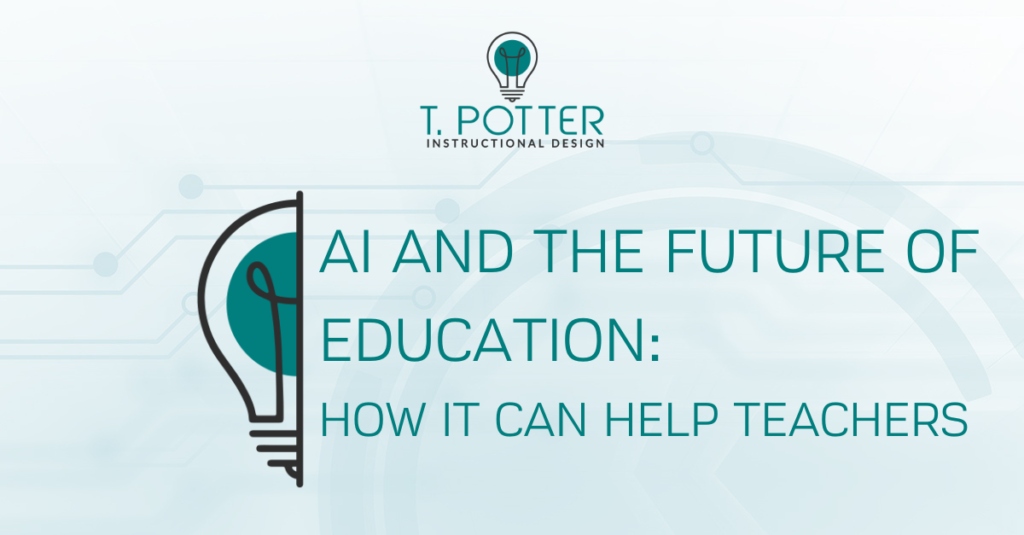
AI Will Help Teachers, Not Replace Them
As I neared the end of my first year of teaching, I stacked up all the papers I had collected from students that hadn’t been handed back yet. At the beginning of the year, I hadn’t thought about how much paperwork I was creating for my students in a public speaking class, but I was definitely thinking about it at the end.
It was 2012, before every student had a Chromebook and every teacher had Google Classroom. However, if I was just putting this many worksheets online for my students I would still have the same questions for myself.
Why was I creating so many assignments on paper for my students in a course focused on giving presentations? I felt like my students needed all those lessons, learning activities, and assessments when I did them, but in hindsight, it seemed like there had to be a misalignment somewhere.
They did give many speeches during the semester, but what if I adjusted my curriculum to focus almost entirely on public speaking instead of so many worksheets?
Over the next several semesters I adjusted my curriculum, and by the end of the fifth time I taught the class my students only handed in one piece of paper all semester. The only papers I handed them all semester were a rubric with their grade on it that I had filled out as they gave their presentations.
Often instructors don’t have the luxury of completely redesigning their curriculum in this way (I was at a private high school and public speaking was an elective), you likely DO have control over how you do the day-to-day tasks that it takes to teach the curriculum you need to teach. That’s the part where AI comes in.
As one teacher shared with Reddit, “Overall, my stress has plummeted by a ton. I truly hated teaching until a few weeks ago. ChatGPT has saved me a ton of stress. I’m just in awe of it.”
But First, What Is AI?
AI stands for artificial intelligence and it has existed for a long time, but you may have not noticed it before. AI technology is the simulation of human intelligence processes by machines.
A popular example of an AI system is Apple’s Siri which is used in everyday life. This assistant helps users perform tasks that vary in levels of complexity, from searching for something on the web to even scheduling appointments. When it comes to the use of ChatGPT, you’ll see the use of this new technology helps even with creative processes, like writing poetry and composing music, which used to be qualities assigned only to human beings.
However, when it comes to the education world in recent years, AI has come a long way. The latest example is ChatGPT. The impact of ChatGPT on the education system has been huge. From helping classroom teachers create lesson plans to improving student performance by researching and analyzing data more efficiently, there’s no doubt the future of education and the learning experience will never be the same as it was.
I understand that change is scary. Many people think AI will end human interaction or worse, take over their jobs, but it will be the opposite. Although an AI teacher will never replace the human touch and empathy that come with the human mind, it can definitely help. Human teachers can highly benefit from AI technology.
A good starting point is with repetitive tasks such as grading, so instructors can do all the critical thinking without the negative impacts like feeling burned out or overwhelmed.
AI Can Take Over Some Of The Necessary But Painful Parts Of Teaching
Here are the main ways in which AI can help the learning environment for everyone, including young students, college students, and teaching staff.
The teacher from Reddit explained how they used ChatGPT to take over the things that were stressful for them: “[ChatGPT] Reduced my grading by 95% as all of my students complete their major tasks digitally, so I can transfer their work and ask ChatGPT to do the mundane things for me (like spell check, grammar, and punctuation). Which leaves me time for the fun stuff: actually reading what my students wrote and giving individualized feedback to help improve their ideas.
Before, checking their work for spelling, grammar, and punctuation would burn me out and my feedback to them was honestly horse-crap. Now? Lord, it feels like I’m actually teaching.”
Your Value As A Teacher Is Not The Facts You Know, It’s The Whole Package.
One of the things that definitely led to me dumping information on my students the first time I taught my class was feeling like my value was in all the facts I had to share with them. In subsequent semesters I reflected on what other ways I brought value to my classroom and remembered that my students would always have access to books and the internet with the information I was teaching them, but it was the experiences I facilitated, the discussions I led, and the feedback I gave that they couldn’t do on their own and would have a profound impact on their learning process.
As I’ve gone on to work with instructors in developing their courses I’ve summarized this idea with the phrase “Your online class is not your PowerPoints.” Frequently faculty are reluctant to share their lecture materials because they feel they are giving away what makes them valuable in academia.
While that may have been true in the days before every student had a smartphone in their pocket, the value of a subject matter expert is now so much more than just the things they can recite off the top of their head. Although presentations have high potential uses, there’s no replacement for the experiences great teachers can offer.
ChatGPT Will Redesign The Instructors’ Jobs If We Let It
When Wikipedia started being in every student’s pocket it had an impact on both students and faculty. Faculty had to emphasize the importance of reliable sources. Because ChatGPT and AI have a tendency to get facts wrong, the role of the faculty member needs to go further than it did with Wikipedia to teach students to think critically about the information that is being generated. This not only gives students the opportunity to think more deeply about the material but also creates ready-made situations for discussion and analysis around every topic.
When we add this to the potential to change the work an instructor does outside the classroom in assessment, lesson planning, and other administrative tasks, ChatGPT and AI have the potential to take the most tedious parts out of the teaching process and replace them with more engaging experiences for both the students and faculty.
In conclusion, AI is a great tool that everyone can benefit from as long as it is used with caution. It’s important to think critically about how it sometimes provides facts that aren’t correct, but for some repetitive tasks, simple research, and many other types of teaching and learning tasks, it is a wonderful tool with an amazing potential for teachers’ and students’ workloads.
Don’t be afraid to give it a try and keep yourself up to date with the newest technology to make your life easier!
Newsletter
Signup for our updates and latest content!
Thank you!
You have successfully joined our subscriber list.

Teresa Potter, M.Ed., specializes in strategic projects that drive measurable results while finding creative solutions. Her organization, T. Potter Instructional Design (TPID), partners with subject matter exports to make training development easy. TPID works with associations, nonprofits, and educational institutions across industries like healthcare, human services, leadership, and AI in education. Their goal is to empower experts to do more of what they do well through the capabilities of teaching and learning science.


